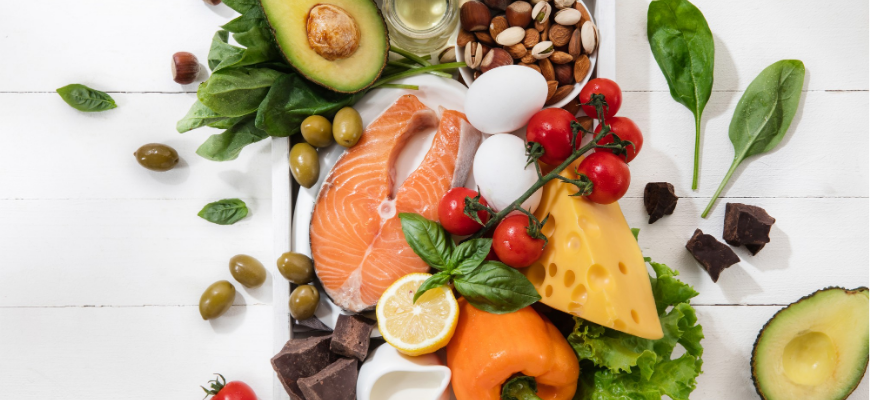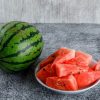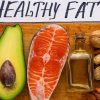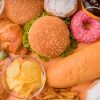
Do you know that as per the reports, one of the biggest health disorders in the USA is stress, which leads to various more serious conditions? Yes, that’s true! But breathing exercises and nutritious foods reduce stress and anxiety. Stress is a common condition that can be caused by many factors. For some people, the best way to relieve stress is to eat. However, you need to keep in mind that not all foods are good for stress relief. In this blog, we will explore various foods that reduce anxiety. We will also talk about the ones that should be avoided at all costs.
Which Are the Foods That Reduce Anxiety?
Now, we are going to tell you about some of the top anxiety–reducing foods that can help you have a healthier and happier life without any stress.
1. Vegetables:
Research says that vegetables are one of the best foods for anxiety reduction. They contain magnesium and vitamin C, which are both important for reducing stress levels and enhancing moods. They also contain antioxidants that help reduce inflammation in the body which can cause or worsen depression symptoms or anxiety attacks.
People who deal with chronic pain may find relief from eating vegetables as well. This is because they are believed to contain natural painkillers such as capsaicin (found in hot peppers) and curcumin (found in turmeric).
2. Nuts and Seeds:
Next up we have nuts and seeds as foods that reduce anxiety. These high-fat foods are great for reducing tension because they contain omega-3 fatty acids which have been shown to improve tension by relaxing your nervous system.
Incorporating foods that reduce stress such as walnuts and pumpkin seeds is great for beginners because of their low-fat content.
3. Dark Chocolates
Next up we have dark chocolate as research says that it is one of the foods that reduce anxiety fast. It is packed with flavonols and antioxidants that reduce tension by increasing blood flow to your brain. This can increase your ability to be alert and concentrate on tasks which can decrease symptoms of anxiety.
4. Anti-inflammatory Foods
Anxiety is not just a mental health issue; it also has physical effects such as increased inflammation and high cortisol levels. Foods that reduce anxiety and help fight inflammation are avocado, berries, mint leaves, and turmeric. Remember that turmeric is great because it has been shown to have anti-inflammatory properties. It also contains curcumin which has been shown to improve cognitive performance.
You need to keep in mind that along with food for stress reduction, there are some foods that should be avoided if you’re trying to reduce your stress. Such foods include fast food, fried foods, and sugar-sweetened beverages. You should try healthy ways to reduce stress like journaling each day or listening to calming music while relaxing in a bubble bath.
5. Fish Rich in Healthy Fats
Fish rich in healthy fats, such as omega-3 fatty acids, have been shown to aid in anxiety and stress reduction. The consumption of fish oil for anxiety, which is derived from these fatty fish, has been linked to improvements in mood and mental well-being.
Research suggests that the omega-3 fatty acids found in the best fish oil for depression anxiety can help alleviate symptoms of depression and anxiety, making it one of the best natural remedies for those seeking relief from these conditions.
6. Eggs
Eggs and anxiety are closely related because it is a nutrient-dense food that can contribute to anxiety and stress reduction. Rich in nutrients like vitamin D, B vitamins, and omega-3 fatty acids, eggs are said to provide essential building blocks for brain health.
Vitamin D plays a role in mood regulation, while vitamin B is crucial for maintaining a healthy nervous system. Moreover, omega-3 fatty acids found in eggs have been associated with improved mental well-being as well. So, incorporating eggs for anxiety into a balanced diet can be a beneficial strategy for managing stress levels.
7. Turmeric
Turmeric, renowned for its medicinal properties, has been studied for its potential benefits in anxiety and stress reduction. Curcumin, the active compound in turmeric, has shown promising effects on mood and mental health. Research suggests that turmeric for anxiety may help alleviate symptoms by regulating neurotransmitters involved in mood regulation.
Furthermore, its anti-inflammatory properties may contribute to reducing symptoms of depression and anxiety. So, we can say that incorporating turmeric to reduce depression and anxiety into one’s diet or taking curcumin supplements could be a natural approach to supporting mental well-being.
8. Chamomile
Chamomile and lavender tea have been widely recognized for their calming properties and potential benefits in anxiety and stress reduction. Lavender, with its pleasant aroma, is also believed to have anxiety-relieving properties. Chamomile for anxiety is well-known for its soothing effects on the nervous system, promoting relaxation and reducing anxiety symptoms.
So, combining these two herbs in tea form can create a soothing and comforting beverage that may help alleviate stress and promote a sense of calmness, making chamomile and lavender tea for anxiety a popular choice for those seeking natural remedies for stress and anxiety.
9. Yogurt
Yogurt for depression and anxiety is yet another good option as it is a probiotic-rich food. Probiotics found in yogurt promote a healthy gut microbiome, which plays a crucial role in mental well-being. It is believed that a balanced gut flora can positively impact mood and alleviate symptoms of anxiety and that’s why we can say that yogurt helps with anxiety.
Additionally, yogurt’s nutrient content, including B vitamins and magnesium, may contribute to overall mental health. Incorporating yogurt into one’s diet may be a simple and tasty way to support emotional well-being and potentially alleviate symptoms of depression and anxiety.
10. Green Tea
Green tea has gained recognition for its potential role in anxiety and stress reduction. The natural compounds present in green tea, such as L-theanine and polyphenols, have been found to promote relaxation and improve mental clarity.
Green tea for anxiety is known to have a calming effect on the nervous system without causing drowsiness. Choosing high-quality and the best green tea for anxiety can ensure maximum benefits. This further makes it one of the best natural options for managing anxiety and stress levels.
What Foods Worsen Stress and Anxiety?
As there are some foods that reduce anxiety, reports say that there are some that can worsen it as well. These include foods that increase stress hormones and oxidative stress.
Different people react to food differently, but there are some general guidelines for what can worsen anxiety:
High-sugar foods:
You should know that, as per the reports, caffeine and alcohol all increase the risk of anxiety symptoms. Moreover, candy, donuts, ice cream, and many other sugary snacks can also worsen anxiety symptoms. Sugar increases stress hormones and this can further lead to an increase in anxiety symptoms.
Fat and Protein:
Some reports suggest that high-fat or protein foods can also increase oxidative stress in the body which has been linked to increased anxiety symptoms.
Caffeine
Contrary to popular belief that it is a food for stress reduction, research says that caffeine is not good for overall health. Yes, you heard it right. It can worsen anxiety due to its effects on the body’s stress hormones and cortisol levels.
Alcohol
Reports say that alcohol is one of the worst things you can consume. It is said to have numerous negative impacts on your physical and mental health including causing stress and anxiety. If you are already dealing with stress, it can even make things worse for you.
Final thoughts
We hope that now you are well aware of the foods to reduce depression and anxiety. By incorporating them into your diet and avoiding the ones that increase stress, you can fight anxiety and depression effectively.
References
2007. Stress a Major Health Problem in The U.S. American Psychological Association. https://www.apa.org/news/press/releases/2007/10/stress
2014. Using food to reduce stress: Effects of choosing meal components and preparing a meal. Behavior Lab. http://www.behaviorlab.org/Papers/FoodStress.pdf
2018. Combating Stress with a Balanced Nutritional Diet. Mhit.org. http://www.mhit.org/assets/combat-nutritional-stress.pdf
2023. Foods and Drinks Linked to Anxiety: What to Avoid and What to Eat. US News & World Report. https://health.usnews.com/wellness/food/articles/foods-and-drinks-linked-to-anxiety
Also Read
REVEALING THE MYSTERIOUS FACTS ABOUT SALT INTAKE
10 DANGEROUS EFFECTS OF STRESS ON YOUR HEALTH AND HAPPINESS
7 GAME-CHANGING TIPS FOR MANAGING TYPE 2 DIABETES
RECOGNIZING THE SILENT GERD SYMPTOMS BEYOND HEARTBURN
UNLOCKING THE SECRET HEALTH BENEFITS OF MUSIC




